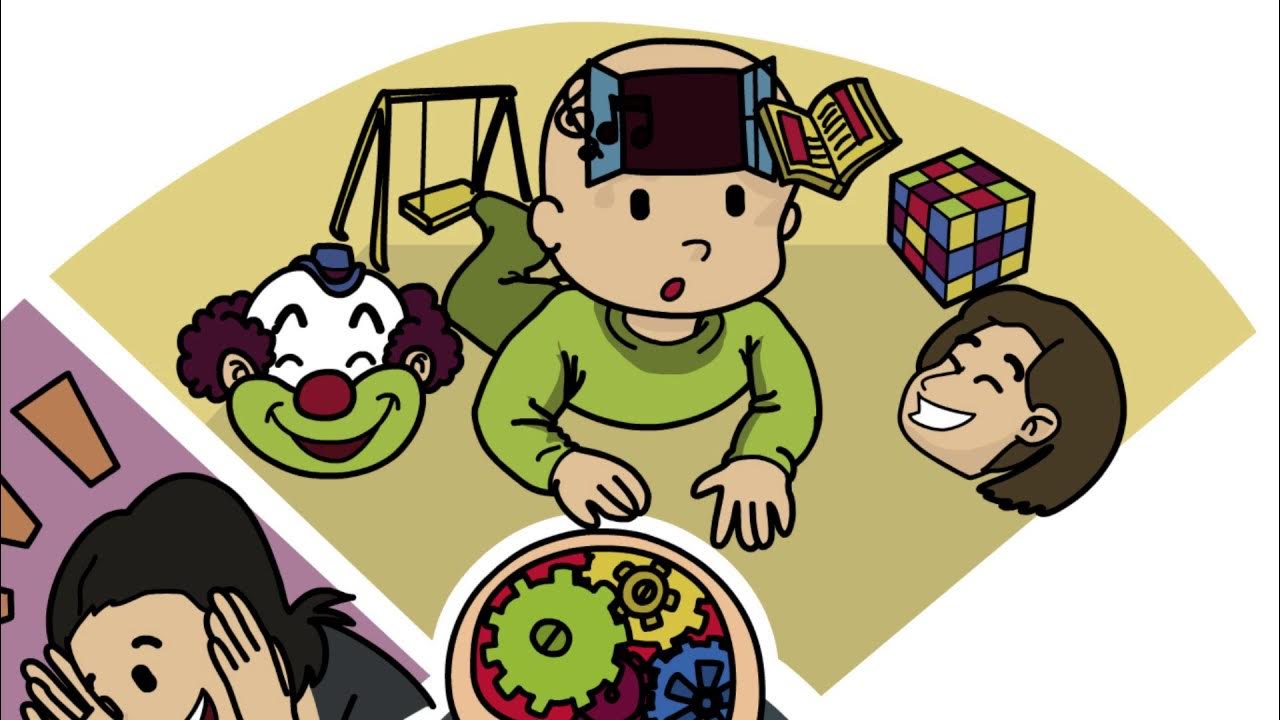How Early Childhood Experiences Affect Lifelong Health and Learning
Summary
TLDRThis video highlights the crucial connection between early childhood brain development and lifelong physical and mental health. It explains how stress impacts biological systems, contributing to chronic diseases like cardiovascular disease, diabetes, and depression. The narrative stresses the importance of early intervention, emphasizing the need for integrated policies in education, health, and human services. The role of pediatric care is key in promoting healthy development and providing timely support. The video advocates for a systemic shift in how early childhood programs are structured to ensure comprehensive support for children and families.
Takeaways
- 😀 Early childhood brain development is closely connected to lifelong physical and mental health.
- 😀 The brain does not function in isolation; it is connected to the body's biological systems, which work together to promote overall health.
- 😀 Stress activates multiple biological systems in the body, including the cardiovascular, immune, and metabolic systems, to prepare for a threat.
- 😀 Chronic stress can lead to long-term health issues like cardiovascular disease, diabetes, and depression.
- 😀 Early childhood adversity, such as poverty, discrimination, and abuse, contributes significantly to long-term health problems.
- 😀 Chronic diseases related to early adversity cost society over $600 billion annually in healthcare expenses.
- 😀 Preventing disease and promoting health starts in the prenatal period and continues through early childhood, not just in adulthood.
- 😀 Effective early childhood policies should focus on reducing stress, strengthening relationships, and building skills, as these contribute to better long-term health.
- 😀 Systemic issues like racism and bias cause ongoing stress for many families, impacting children's development and well-being.
- 😀 Pediatric primary care offers an ideal opportunity for early intervention, connecting families to services that support healthy development.
- 😀 To improve early childhood outcomes, we must create an integrated ecosystem that includes pediatrics, education, health, and human services.
Q & A
Why is early childhood brain development important?
-Early childhood brain development is crucial because it influences the growth of investments in early learning programs, which in turn enhance school readiness. It impacts both cognitive and physical health, shaping lifelong well-being.
How are the brain and the body interconnected in early childhood?
-The brain is deeply interconnected with all other biological systems in the body. These systems are primed to adapt to the environment, and they work together like a highly skilled team, influencing each other's responses.
What happens to the body when we experience stress?
-When stressed, the brain signals the body to activate several systems: the cardiovascular system raises heart rate, metabolic systems release more energy, the immune system is put on alert, and stress hormones increase, which all provide feedback to the brain.
What are the consequences of prolonged stress on the body?
-Chronic stress leads to wear and tear on the body, causing long-term damage. This constant stress response is linked to various chronic diseases, including cardiovascular disease, diabetes, and depression.
How do early childhood experiences contribute to chronic diseases?
-The most costly chronic diseases, such as cardiovascular disease, diabetes, and depression, have roots in early childhood experiences, especially those involving high levels of adversity. These diseases cost society billions in healthcare expenses each year.
What is the connection between early childhood health and disease prevention?
-Health promotion and disease prevention should begin in the prenatal phase and extend into early childhood, not just during adulthood. Addressing factors such as early learning, relationships, and reducing stress during this period is key to lifelong physical and mental health.
What role does early childhood policy play in improving health outcomes?
-Early childhood policy should integrate principles that promote early learning, strengthen relationships, and reduce stress. These factors are essential for both improving school readiness and supporting lifelong health.
What are some major sources of adversity in early childhood?
-Major sources of adversity in early childhood include poverty, discrimination, exposure to violence, maltreatment, and child abuse. These stressors affect children’s development and can have lasting biological impacts.
How does systemic racism affect children in early childhood?
-Systemic racism, implicit bias, and discrimination impose ongoing stress on families of color, affecting their children’s development and contributing to the disparities in health and education outcomes.
Why is pediatric primary care critical in early childhood development?
-Pediatric primary care provides a unique opportunity for engaging families, promoting healthy development, and connecting children to necessary services from birth onward. It is a key touchpoint for addressing early health and educational needs.
How can pediatric care be integrated with early childhood programs?
-Rather than simply connecting pediatric care with existing early childhood programs, the goal should be to build a new ecosystem where pediatric care is an integrated part of a broader network supporting early learning and health.
Outlines

This section is available to paid users only. Please upgrade to access this part.
Upgrade NowMindmap

This section is available to paid users only. Please upgrade to access this part.
Upgrade NowKeywords

This section is available to paid users only. Please upgrade to access this part.
Upgrade NowHighlights

This section is available to paid users only. Please upgrade to access this part.
Upgrade NowTranscripts

This section is available to paid users only. Please upgrade to access this part.
Upgrade NowBrowse More Related Video
5.0 / 5 (0 votes)





